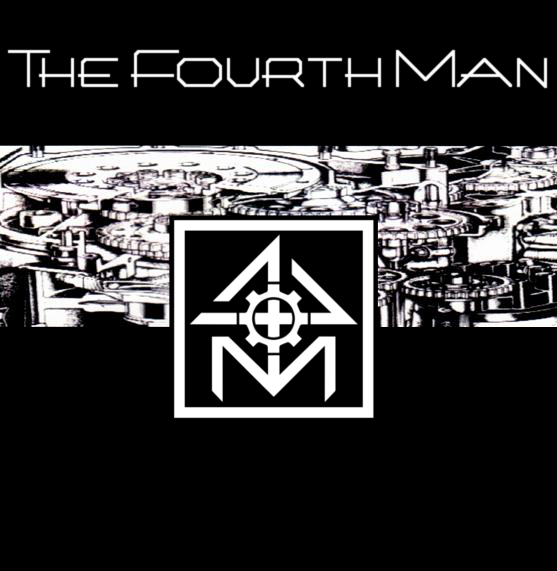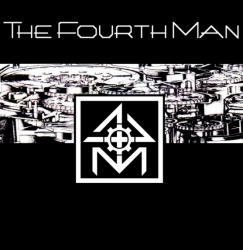Replicas is the handle we use to write about reissues, offering some thoughts on the original release, and whether or not there’s enough goodies to warrant a repurchase if you own a previous version of the album. In today’s column we give a listen to a long-lost part of Vancouver industrial history which is only now climbing out of the memory hole…
The Fourth Man
self-titled
self-released
What is it? The Fourth Man occupied a very particular place (or void) in the development of my love for industrial music, and specifically industrial from Vancouver. By the time I’d sourced all the second-hand Skinny Puppy and FLA CDs which had trickled out to the suburbs in the late 90s and was looking for further fixes, The Fourth Man had essentially sunk beneath the waves. When I moved into the city proper, their name was being tossed about as an influence on more contemporary acts (namely Seventh Image), and in “whatever happened to X, they were good” conversations when the lights had switched on after last call. In spite of (or maybe due to) never having heard them, The Fourth Man held a certain mystique for me which immediately triggered my “holy shit, buy it” response when I saw that their material had surfaced on Bandcamp.
After making rudimentary forays into recording in the late 80s, David Collings teamed up with Gabriel Abney to explore the still-fresh concept of “cyberpunk” via a series of low-fi, home-recorded, 4-track recordings. The end result will feel strangely familiar to Collings’ later work as vocalist for Numb, but also points clearly to the industrial zeitgest of the time: Wax Trax, FLA, and plenty of Belgian sounds can all be found in The Fourth Man‘s mix of electro-industrial and EBM, all set about with anger and social criticism. Tunes are brisk, with deft snares and blocky kicks augmented by speedy synth-bass pointing the way to 90s American coldwave (though guitars are almost entirely absent from all but the final songs).
What’s on this reissue? You’re getting the fourteen tracks (plus one hidden one of Abney trolling Collings by playing a lounge preset on a drum machine during a show) which originally appeared on the 1994 Factoria release of this record, actually comprised of The Fourth Man’s various self-released demo tapes up until that point, rather than a single LP session. Let’s not beat about the bush: the recording on much of The Fourth Man is abysmal, and does indeed sound as though it was recorded using a potato, in the parlance of our times. David Collings extensively goes into the reasons behind this, noting that not only were these intended to be demos, but that they suffered from the sort of technical limitations bands have to go out of their way to bump into twenty years on. This might have been a weakness at the time, but in an age in which the technical limits of even the most revered industrial records can be pointed to instantly, the rough edges only add to the charm.
Who should buy it? “Everything old is new again” is a cliche for a reason, and the raw and unyielding industrial pummeling The Fourth Man dish out feels quite fresh twenty years after its release. While not cleaving as close to the EBM template as some neo-classical acts currently are (as mentioned above you’re getting a mixed bag of sounds and influences from across the aggressive electronic spectrum), the same fist-pumping squelch and clang which is driving listeners to, say, Youth Code is firmly woven in The Fourth Man’s DNA. Long in the tooth Vancouver rivets who still have an original copy of the Factoria release won’t be finding anything new on this reissue, but they and everyone else into this sort of sound should be happy about the news that Collings and Abney are working on Fourth Man material once again, both reworkings and originals. Stay tuned…






